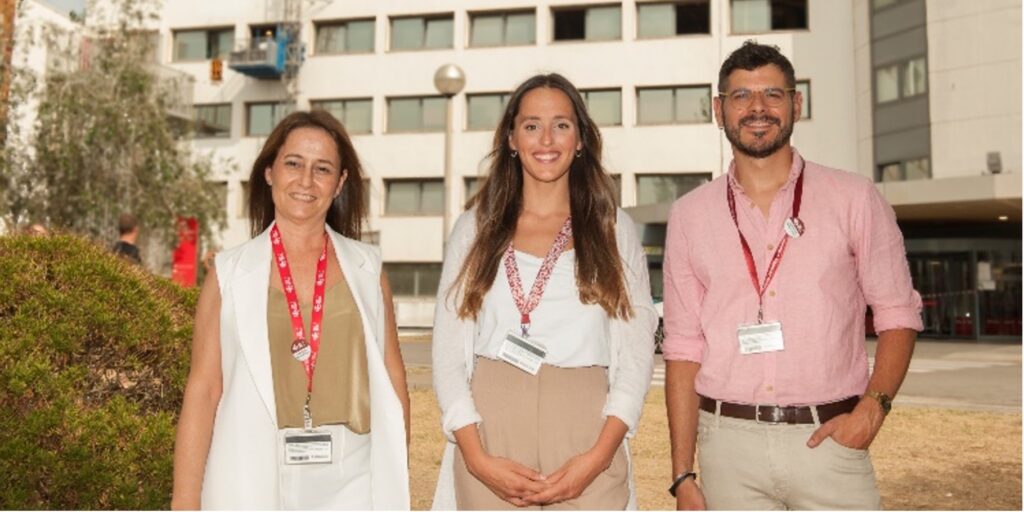A recent study reveals the direct influence of psycho-emotional, cultural, and social factors on repeated visits to the Emergency Department. This work, led by Andrea Urbina, a nurse from the Emergency Department of the Bellvitge University Hospital (HUB) and a researcher from the GRIN-IDIBELL nursing research group, reveals that the emotional and social well-being of patients is decisive and, in fact, more complex patients are more likely to return within 30 days of discharge from the Emergency Department.
Traditionally, the most biological sphere of the patient has been more studied, that is, how age and pathologies are related to worse health outcomes. But there are other factors of care complexity that also affect the evolution of the patient, such as those of the sociocultural or psycho-emotional sphere.
“For healthcare practice, this study makes it possible to demonstrate the importance of considering all aspects of the patient’s health in a holistic way, not only the medical aspects, when treating their needs. Emotional well-being, cultural level and social aspects can be key factors that affect the frequency with which a person seeks assistance in the emergency services”, in the words of the nurse.
One in five re-visits are from high-frequency patients
Data collected from 15,556 episodes of patients treated in the Bellvitge Hospital Emergency Room show that 82.4% of them present some factor of care complexity.
In addition, around 12% of patients return to the Emergency Department. Among the factors most frequently associated with these revisits in the 30 days following discharge are incontinence, hemodynamic instability, risk of bleeding, advanced age, anxiety and fear, impaired cognitive functions, and illiteracy. Therefore, the study shows that repeated visits are also associated with socioeconomic and cultural factors, as well as problems related to comprehensive health or social vulnerability.
“Having this information available in the form of an alert in the electronic medical record could help emergency teams identify those patients who may be at higher risk of requiring urgent care again and develop strategies to improve the continuity of their care and at the same time, reduce the economic impact on the health system,” according to Urbina.
The conclusions of this work open up challenges and opportunities, including the possibility of establishing new follow-up strategies for patients together with Primary Care, promoting continuity of care, or coordination with social service professionals at the time of discharge.
A decade of top-level nursing research at Bellvitge
The study has been published in the prestigious scientific journal Emergencies, one of the leading journals in the field of urgencies and emergencies worldwide. The authors of the study are part of the GRIN-IDIBELL nursing research group, which has been investigating the complexity of care for more than a decade under the leadership of Dr. Maria Eulàlia Juvé, who created the ATIC terminology for nursing knowledge architecture at the framework of the Catalan Institute of Health.
The publication of the article has been accompanied by an Editorial in which the importance of continuing research on the line of care complexity is highlighted, with the challenge of “contemplating the holistic nursing vision in the assessment of patients”.
Precisely, GRIN-IDIBELL works jointly in the line of Patient Complex to open future lines of research on the impact of the complexity of care on the health results of patients. This latest study is part of the doctoral thesis of the nurse Andrea Urbina, whose director is Dr. Jordi Adamuz, research support nurse at the University Hospital of Bellvitge, and Dr. Marta Romero, professor at the Faculty of Nursing of the University of Barcelona.
The Bellvitge Biomedical Research Institute (IDIBELL) is a biomedical research center created in 2004. It is participated by the Bellvitge University Hospital and the Viladecans Hospital of the Catalan Institute of Health, the Catalan Institute of Oncology, the University of Barcelona and the City Council of L’Hospitalet de Llobregat.
IDIBELL is a member of the Campus of International Excellence of the University of Barcelona HUBc and is part of the CERCA institution of the Generalitat de Catalunya. In 2009 it became one of the first five Spanish research centers accredited as a health research institute by the Carlos III Health Institute. In addition, it is part of the “HR Excellence in Research” program of the European Union and is a member of EATRIS and REGIC. Since 2018, IDIBELL has been an Accredited Center of the AECC Scientific Foundation (FCAECC).

